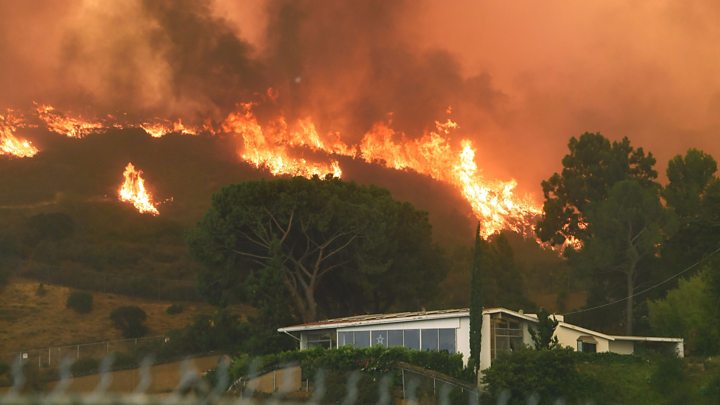Typhus outbreak strikes downtown L.A. as liberal-run city descends into filth and destitution
10/17/2018 / By Lance D Johnson

Descending into filth and destitution, dirty downtown Los Angeles has become a breeding ground for disease. The county Department of Public Health is now warning downtown residents that a new flea-borne bacterial disease is spreading from the city’s garbage heaps and rat population. This flea-borne typhus causes flu-like symptoms. Once infected, humans experience high fever, chills, headache, and rash. The infectious bacteria, Rickettsia typhi and Rickettsia felis, are transmitted by fleas. The flea may emit infectious bacteria from their feces. When a person scratches their skin, the bacterium can enter the epidermis and permeate the person’s bloodstream. The fleas are attracted to stray cats, opossums, and the city’s growing rat population. These animals do not get sick, but they bring the fleas closer to human exposure.
L.A. residents warned to protect their extremities
Los Angeles County Health Officer Muntu Davis said, “Although typhus normally occurs throughout L.A. County, we are observing several cases in the downtown Los Angeles area.” This is because the city cannot control its waste, garbage, and rodent population. Muntu Davis encourages pet owners “to practice safe flea control” and urges city officials in the county “to ensure maintenance of their trash clean-up and rodent control activities.” The county is also urging residents to secure their trash in cans with lids. The situation is so bad, that residents are encouraged to protect their extremities, wear pants, and tuck them into their socks when they are outside.
L.A. typhus outbreak easily mistaken for the flu
This typhus outbreak is one of many diseases that easily gets mistaken for the flu. Because there is an aggressive flu vaccine marketing campaign, many people who get sick by this bacteria think they need the “flu shot.” Although many infections are confused with the flu and misreported, this disease is not transmitted from person to person and is not caused by a virus. There are about 200 cases properly reported every year in the U.S. A blood test can help identify this disease.
Because Los Angeles cannot manage its garbage and filthy streets, typhus has become endemic in the area, meaning it is always present. The bacterial infection can be treated with antibiotics if the infected person is willing to weaken their microbiome for future susceptibility to other pathogens. Without conventional antibiotics, most people recover in a few days. Many people, concerned about a high fever and a rash, seek hospitalization regardless. Natural antibacterial compounds can be used to help the body overcome the infection without conferring resistant traits to the person’s unique microbiome. The high fever can be made productive by supplementing with natural extracts of elderberry, goldenseal, and feverfew. (Related: 12 of the most POWERFUL antibiotics you can get without a prescription.)
The best prevention, however, is not to go near the disease-ridden streets of Los Angeles. Roughly 50,000 people are living on the streets of L.A., addicted to drugs and defecating on the streets. With a homeless population that has increased by 23 percent in the past year, Los Angeles has bred nothing but drug addiction and poverty. Because there aren’t enough public toilets, the streets are marred by human feces. Drug paraphernalia is also heavily discarded, leaving residents prone to outbreaks such as hepatitis A. Critics believe that the $1.3 billion that is spent annually on illegal immigrants could be used to fix the city’s disease-stricken streets and help lift many out of poverty and drug addiction. Poor sanitation, poor nutrition, and filthy water is the true cause of many disease outbreaks — not lack of vaccines.
Typhus and hepatitis A are the tip of the iceberg. As L.A. caters to illegal immigration and descends into filth and destitution, more disease, drug addiction, rape, and murder are only inevitable.
Sources include:
Tagged Under: addiction, bacterial infection, Collapse, Collapsifornia, drug addiction, fever, filthy streets, Hepatitis A, homeless population, infectious disease, Open Borders, outbreak, poor sanitation, poverty, rash, typhus, vector-borne disease



















